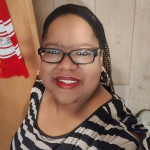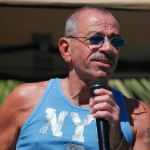Falls Church, Virginia
HIV Negative
After the paper dinner plates are cleared, the Lions Club president offers me a beer, perhaps thinking it’ll lighten the tone of my serious business. I get to my subject quickly, describing how my hospice—where I’m a longtime volunteer—tries to provide maximum comfort and dignity to people near the end of their lives. Talking to the two dozen men seated at the long wooden tables in front of me, I keep trying to make eye contact with them to see whether they’re with me or somewhere else.
I’ve given this kind of talk—about preparing for death as our final chapter—many times now over the years. And as the men ask questions, I wonder—not for the first time—why I’ve persevered in this mission. I’m aware of my needs to be a do-gooder, a helper, my need for a spiritual vocation and for ego satisfaction, in part because I decided long ago to be a manager in a big organization and not a professional caregiver.
But there’s more to it than that. The men have more questions. And so do I. Will listening to the concerns and fears of mourners better prepare me to acknowledge and feel the grief from the deaths in my own family or to better face the great unknown? The faint glimmers, at best, of what really happens at the end of our physical life, our mortal consciousness?
The men at the Lions Club seem to listen intently. Several nod knowingly when I say it’s hard to give up control over our lives in hospitals, especially when doctors and nurses are following a prescribed medical regimen. Maybe I’m wrong. Maybe they just want to know about the nuts and bolts, like Medicare reimbursement or using strong potentially addictive drugs to reduce their own pain or that of a loved one. I shouldn’t prejudge my audience.
I don’t tell these men that my son died of AIDS complications over 20 years ago at the age of 21. Over the years since David’s death, I’ve wrestled with the question of discussing with my audiences this most momentous event for my family. I ultimately decided that focusing on my own grieving would get in the way of my hospice message.
I know how I’ve felt when politicians speak in public about their own family losses. Maybe they’ve been sincere, but they usually seem to me to just be trying to look more human or playing for sympathy votes.
Speaking here of David’s illness and death would make me cross boundaries I don’t want to cross, reopen my own sorrows and make me vulnerable again in a way that I don’t think will accomplish what I want to do for my hospice or for all hospices. Also, I might be prejudging my audience again tonight. There’s a good possibility of an unspoken negative reaction from men who are still uncomfortable talking about AIDS or the behavior that might have brought it about. For good or ill, reasons of prudence, privacy or denial, I’ve decided not to go down this path in my speaking about dying.
I conclude, as usual, by asking my listeners to consider what hospice might someday be able to do for them, their families and friends. But I’ve learned over the years, not to push people too much—either in churches or in service organizations—to look at the prospect of their own or loved ones’ deaths someday.
I often find myself hesitating once or twice during a talk. Not because I’m at a loss for words but because I’m caught up in an unexpected emotion. Sometimes, I catch my breath or hold back a few tears that seem to materialize from nowhere. Exactly which words or images evoke this, I’m never able to pinpoint.
I imagine it’s mostly about David’s death, which happened so many years ago, but still at times, like tonight, is vivid in the minds of my wife and me. I wonder whether my listeners sense my vulnerability at such moments. But I don’t worry about it. I just appreciate this better inkling of what other mourners feel when their defenses are down. I think I’m getting closer to grace.
What three adjectives best describe you?
Creative. Compassionate. Critical.
What is your greatest achievement?
Being able to change and grow.
What is your greatest regret?
Not listening enough when I was younger.
What keeps you up at night?
Indigestion.
If you could change one thing about living with HIV, what would it be?
A greater likelihood of cures and comfort.
What is the best advice you ever received?
Listen attentively and compassionately.
What drives you to do what you do?
A sense of mission and survival instincts.
What is your motto?
Live life to the fullest.
If you had to evacuate your house immediately, what is the one thing you would grab on the way out?
My wife.
If you could be any animal, what would you be? And why?
A dog, so I could love my human parent with devotion and without judgment.






Comments
Comments